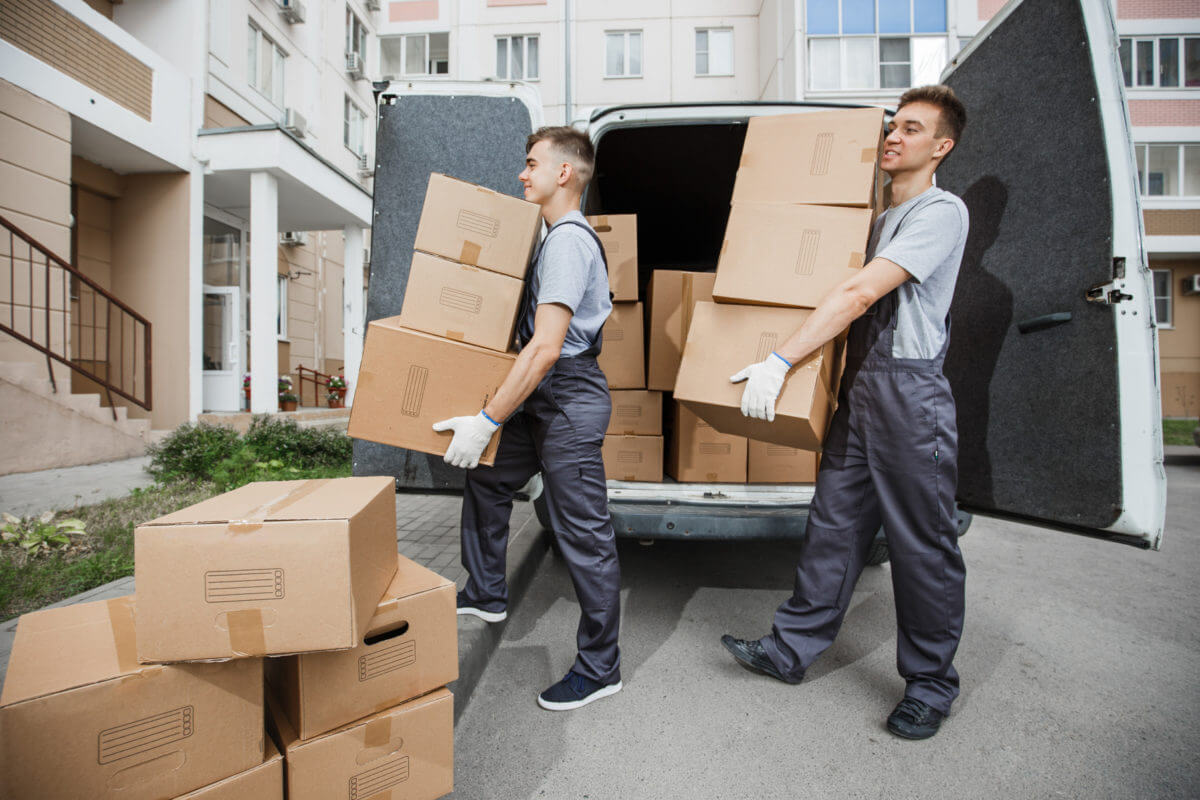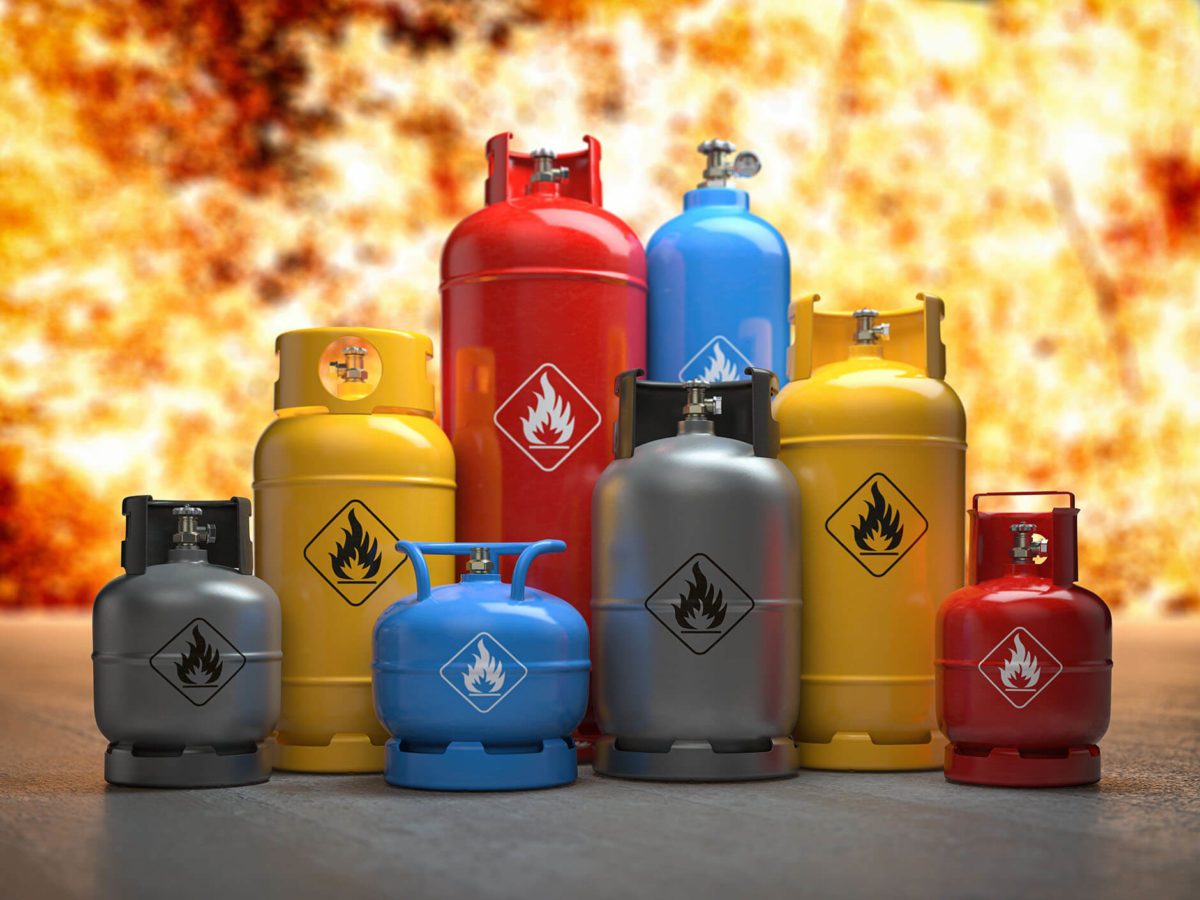Relocation day is here, and everything’s sealed and ready. But then, movers come and tell you they can’t transport some of the boxes. To avoid getting surprised (and upset,) learn about the items movers won’t move. Some of them aren’t transported for a good reason, so start taking notes and prepare well.
Make sure you have a list of prohibited items for transport, so nothing gets left behind Before Packing, Ask Your Long-Distance Moving Company for a List of Items Movers Won’t Move
One of the most common relocation mistakes is not learning what to get rid of when relocating. That doesn’t just mean things you don’t need anymore, but also those that cannot be transported even with professional long-distance moving services. They classify them into prohibited and restricted items.
There is a comprehensive list of substances and materials that none of the cross-country moving companies wish to deal with. Packing them doesn’t count into the hourly rate of a cross-country moving company because they’ll tell you even before providing packing services what they don’t transport.
This shouldn’t change your reasons to move. It could just affect how and what you pack. The sooner you know what not to bring, the more efficient you’ll be in preparing for relocation day.
Declutter to Reduce the Amount of Cargo and the Cost of Moving
The cheapest way to move out of state is to pack the bare necessities. Additionally, consider your losses. What do you think is worth packing and moving out of your home? For most people, that’d be something hard to replace or expensive to buy new.
On the other hand, look at the stuff in your home that’s easily replaced and available everywhere. There’s no need to make room for it in the boxes if it’ll just be replaced or bought new when you move. You’ll see how the relocation budget will start to look more generous the less you pack.
Some things don't have to come with you to the new home. It's better to replace them if that's easy to do. 1 So, What Movers Won’t Move? Hazardous Materials Are Prohibited for Transport
Do you know what’s considered hazardous? It could come as a surprise to you, but things that are prohibited from ever being transported by professional moving companies are some of the most common daily stuff. Cleaning products, batteries, even wax candles are just some of the stuff on the list.
You can reduce costs by not packing anything that cleans the drains and bathroom. After all, relocating to a smaller home will require less cleaning, which will subsequently require fewer chemicals laying around.
Additionally, if you ignore the warning of a relocation company about prohibited items and pack them anyway, any damage that the chemicals might cause wouldn’t be covered by them. Chemicals react to changes in environment, temperature, and movement. If they experience all three, you’ll have bigger problems later on.
Examples of Hazardous Materials and Items
Here are some of the most common hazardous and damaging materials that moving companies don’t transport:
- Paint,
- Motor oil,
- Cleaning supplies,
- Pool chemicals,
- Nail polish remover,
- Car batteries,
- Acids,
- Lighter fluid,
- Gasoline,
- Poisons.
Anything that falls under these categories won’t be accepted for transport by professional movers. Prohibited and restricted items for transport come in other types, too, which you can read more about below.
Gas tanks are extremely dangerous for transport, and they're always shipped by trucks specially made just for that. Moving trucks aren't one of them. 2 Flammable and Explosive Things Have to Be Left Behind
If you plan to relocate to the suburbs, you’ll probably want to have a nice barbecue set in the backyard when the family gathers on the weekends. However, it’s best to avoid bringing the gas bottle, the coal, and the fire extinguisher for the set and simply buy them after relocating.
Whether you hire cross-country movers or try to move alone, transporting hazardous and flammable materials is not recommended. They can have severe reactions to changes in temperature and environment, which could cause them to explode and wreak havoc on other cargo.
More examples of flammable and explosive materials prohibited for transport are:
- Matches,
- Kerosene,
- Scuba tanks,
- Propane tanks,
- Aerosols,
- Guns and ammunition.
If you’re not even sure how to store some of these substances properly, the short animated video below explains where to look when storing them and what happens when they’re not correctly placed.
3 Perishable Foods Can’t Come Along
Don’t pack any food when you prepare for long-distance movers to collect your stuff and load it into the truck. This is especially true for perishable ingredients like meat, fruits, and vegetables. They can go bad quickly if they’re out of a fridge or at a non-ideal temperature.
Rotting produce and meat can cause all kinds of molds and bacteria to fester. It’s not enough to say that it smells terrible; mold is actually dangerous for people. Additionally, it can severely damage furniture if uncontrolled. There’s the other issue of rats; if they smell food in the truck, they can crawl in and wreak havoc on anything and everything lying around.
If you’re moving cross-country alone, it will be easier to pack a couple of cans of food and bring them in an essentials box with you. Canned goods are not easily perishable but should be transported in open containers. That way, they can’t explode from uneven air pressure. Otherwise, maybe you can skip bringing the food and just order in for a few days until you unpack.
Leave Fresh Ingredients You Have to Someone Who Needs Them More
In the case of a last-minute relocation, you may not know what exactly to do with the perishable foods left in the fridge. This is an excellent time to donate unwanted things. Food banks and soup kitchens always accept donations. Even your neighbor might benefit from some of those fresh tomatoes sitting in the fridge drawer.
Ask around if anyone needs or wants to accept extra food, so you don’t have to throw it in the trash. Helping someone in need is guaranteed to make you feel better and relieve the stress of relocating.
You can donate any fresh produce you have leftover before relocating. Maybe someone in the neighborhood would accept it, too. 4 Living Things Like Plants and Pets Are Your Responsibility
Being responsible for other living beings and things can cause a lot of relocation stress. Relocating with kids is hard enough, especially when they’re toddlers or just babies, but creating a safe environment when relocating with pets and packing plants can get equally stressful if not done right.
Professional relocation companies aren’t allowed or required to handle plants and pets during transport. While this should make sense, we’ll still talk about why that’s so. Many people call their pets their ‘babies,’ and many do the same for plants. Both require regular care and attention, and being locked inside a relocation truck isn’t the equivalent of that.
Your pets should stay in their carriers and travel with you in the car. Keep their treats and some water nearby so they can handle the trip nourished and taken care of. Pets can feel relocation depression as much as humans, so being there for them is more than vital in this period.
How to Pack Plants for Transport
If relocating to a big city from a smaller place, you’ll have to figure out how to keep and grow greenery in a different environment. Before that, however, you need to learn how to prepare them for relocation properly. While transporting flowers across the country isn’t recommended, there are ways to do it without harming them too much.
Try following these tips for relocation day if you want to move plants:
- Pack the smaller ones into a shallow container, like a cardboard six-pack holder or a wooden crate that you can get from a store. Keep them in a well-lit place in the car,
- If some of them don’t like the sun too much, they might be able to brave the trip in the trunk,
- Water them on relocation day and wait for the water to drain before placing them in the car,
- Ensure to let fresh air in to give the flowers (and yourself) some oxygen during the drive.
These are simple ways to transport any plant. However, there may be more arguments for leaving them behind instead. You’ll rarely hear from any mover or plant lover that relocating them across long distances is safe. Besides, if you decide to give your car to the relocation company for interstate vehicle shipping, it’ll be hard to bring any delicate cargo.
Consider these options besides transport:
- Give away each plant to friends, neighbors, and family members,
- Sell them at a garage sale or even online,
- Donate them to local organizations or facilities like nearby schools, care homes, or even restaurants and bars if they’d like them,
- Leave them where they are and contact the new residents to give them care instructions.
It can be easy with pets, but plants are tough to transport. Consider leaving them behind to keep the move as simple as possible 5 Personal Valuables and Documents Should Only Be by Your Side
The upside of cross-country moving services is that some things can stay in the company storage units if it comes to that. Maybe some furniture in the new home has to be moved out before yours can be placed. However, you wouldn’t wish your social security card or mortgage papers to be locked away in some storage by accident.
Documents and valuables are part of the relocation essentials list. These are best transported close to you, in a special box or bag, so you know exactly where to find them later. It is up to you to organize them, but the first thing to do after relocating is to ensure all the valuables and papers made it home with you.
Relocation companies don’t accept transporting personal belongings and documentation because they don’t want any repercussions in case of damage or disappearance. It makes sense because valuable stuff should be kept close by, so why risk it? It’s best if you determine what’s valuable and pack it accordingly.
Pack the essential documents in a binder or bag, and keep them by your side during the move. Preparing Well for a Move Means No Damage or Trouble Afterward
Making a household inventory list and double-checking it with movers is an excellent first step when relocating. They will immediately tell you what’s not possible to transport. We hope you understand the importance of leaving some stuff behind when relocating. That way, damage and trouble will be avoided, and the move will be successful.
Maybe it is clearer now how important it is to be well-organized and prepared for relocation. Preparation is beneficial in many aspects, from saving money and time to reducing stress and anxiety about relocating. Ensure this time goes well for you by being ready.
FAQ
What Are Some Items That Movers Won’t Move?
There are some items that long-distance movers typically won’t move, including:
- Hazardous materials: Cross-country movers are not allowed to transport hazardous materials, such as propane tanks, chemicals, and gasoline.
- Perishable items: Movers may not transport perishable items, such as food, plants, or living creatures.
- Valuable items: Movers may not transport high-value items, such as cash, jewelry, or important documents.
- Restricted items: Movers may not transport items that are restricted by law, such as firearms or explosives.
Why Do Movers Have Restrictions on Certain Items?
Some items are too dangerous to transport, such as hazardous materials or explosives. Movers must prioritize the safety of their employees and other customers by avoiding these types of items. There are certain items that are restricted by law, such as firearms or drugs. Cross-country movers must comply with these regulations to avoid legal consequences.
How Can I Dispose of Items That Movers Won’t Move?
If your movers won’t move some items, but they are still in good condition, you can try selling them or donating them to a local charity or non-profit organization. Websites like Craigslist or Facebook Marketplace can be a great place to sell items, while charities like Goodwill or the Salvation Army will accept donations of gently used items.
What Are the Risks of Moving Restricted Items With a Moving Company?
Cross-country moving companies often have a list of restricted items that they cannot transport due to safety, legal, or ethical reasons. If you move restricted items without obtaining the necessary permissions, you could face legal consequences, fines, or even imprisonment. Moving hazardous materials or chemicals can pose serious safety risks to the movers, your property, and the environment. These items can be flammable, toxic, or corrosive, and mishandling them could result in fire, explosions, or chemical spills.
Can I Transport Restricted Items Myself, or Should I Hire a Specialized Carrier?
Transporting restricted items yourself can be risky, and it may be safer to hire a specialized carrier with the necessary licenses and permits to transport these items. Certain items, such as firearms, explosives, or hazardous materials, require special permits and licenses to transport. It is important to research and comply with all relevant laws and regulations to avoid any consequences. Long-distance moving companies and specialized carriers typically carry insurance that can cover damages or losses during transport. If you transport restricted items yourself, you may not be covered by insurance if something goes wrong.
How Can I Prepare and Label Restricted Items That I Plan to Move On My Own?
Before you begin, research the legal requirements for transporting the specific restricted items you plan to move. This may include obtaining the necessary permits, licenses, and insurance coverage. Use appropriate containers for the items to ensure their safety during transport. For example, hazardous materials should be stored in leak-proof containers that are compatible with the material. Make sure that all containers are securely closed, sealed, and stored to prevent spills or leaks during transport.
Are There Any Additional Costs Associated With Moving Restricted Items?
Yes, there may be additional costs associated with moving restricted items, depending on the nature of the items and the regulations governing their transportation.
For example, if you are moving hazardous materials such as chemicals or flammable substances, you may need to pay additional fees for specialized handling and transportation, as well as for any necessary permits or licenses.
Similarly, if you are moving items such as firearms, alcohol, or tobacco, there may be additional fees and requirements for ensuring that these items are transported safely and in compliance with local laws and regulations.
What Should I Do if I Accidentally Pack or Forget to Mention a Restricted Item?
If you accidentally pack or forget to mention a restricted item during the moving process, it’s important to take action as soon as possible. Contact your long-distance moving company and inform them about the restricted item. They may have procedures in place for dealing with such situations and can provide guidance on the next steps.
Can I Purchase Additional Insurance Coverage for Restricted Items During a Move?
It depends on the cross-country moving company and the nature of the restricted item. Some moving companies may offer additional insurance coverage for certain types of restricted items, such as valuable or fragile items, but may not offer coverage for hazardous materials, firearms, or other items that are prohibited by law.
How Can I Determine if an Item Is Restricted or Prohibited From Moving, and Where Can I Find a Comprehensive List of Restricted Items?
To determine if an item is restricted or prohibited from moving, you can start by checking with the relevant regulatory agencies and reviewing their guidelines and requirements. The specific regulations that apply to your items will depend on a variety of factors, such as the type of item, its value, and its potential hazards.














